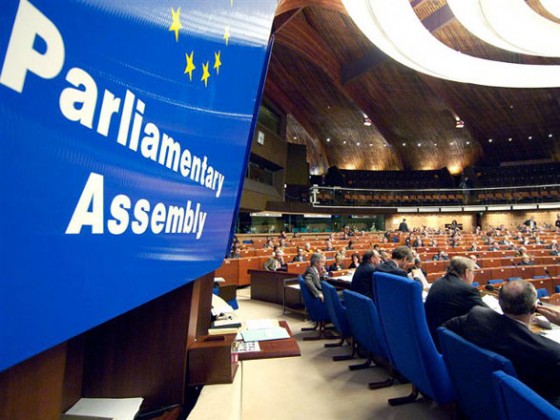
The Armenian-Azerbaijani Nagorno-Karabakh conflict will be discussed Jan. 26 during the PACE Winter Session, the website of the organization said Jan.14.
Among the items on the agenda are reports on "Escalation of violence in Nagorno-Karabakh and the other occupied territories of Azerbaijan" and on "Inhabitants of frontier regions of Azerbaijan are deliberately deprived of water", the website said.
The PACE Committee on Political Affairs approved a draft resolution on November 4, which urges to withdraw the Armenian armed forces from Nagorno-Karabakh and other occupied territories of Azerbaijan, as well as to recognize the full sovereignty of Azerbaijan over the mentioned territory as part of the Minsk process.
The PACE Committee on Social Affairs adopted the draft resolution entitled "Intentional deprivation of the inhabitants of the Azerbaijani border regions of water" Nov. 3.
The Sarsang reservoir was built in 1976 on the Tartar river at the height of 726 meters above sea level and is the highest one in Azerbaijan. Since 1992, the reservoir has been controlled by the Armenian armed forces, and that’s why the districts near the frontline cannot use it. For the 20-year-old occupation, technical facilities and equipment of the Sarsang reservoir due to lack of maintenance are in emergency condition. The probability of destruction of the reservoir as a result of malfunction, natural disaster or sabotage is extremely high and is now a real threat for Azerbaijan.
The conflict between the two South Caucasus countries began in 1988 when Armenia made territorial claims against Azerbaijan. As a result of the ensuing war, in 1992 Armenian armed forces occupied 20 percent of Azerbaijan, including the Nagorno-Karabakh region and seven surrounding districts.
The two countries signed a ceasefire agreement in 1994. The co-chairs of the OSCE Minsk Group, Russia, France and the US are currently holding peace negotiations. Armenia has not yet implemented the UN Security Council’s four resolutions on the liberation of the Nagorno-Karabakh and the surrounding regions.
Trend
